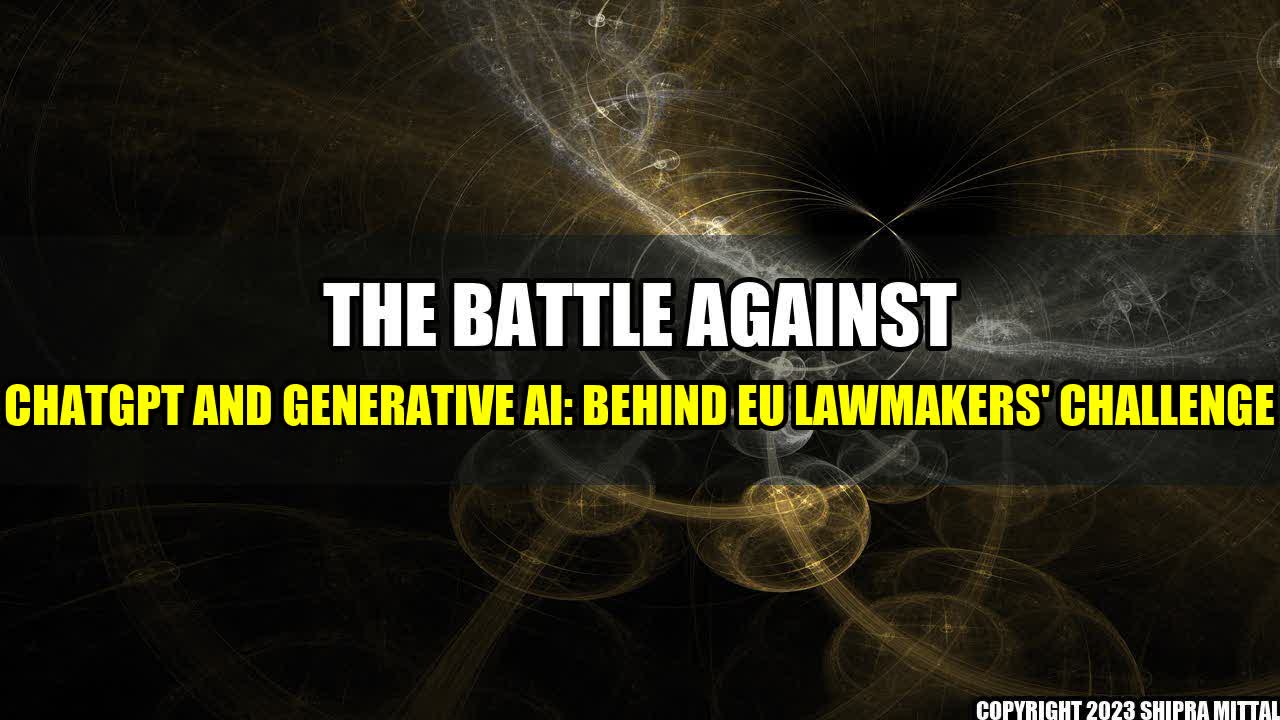Imagine having conversations with bots that not only respond like humans but also have their own personality, backstory and individuality. Thanks to generative artificial intelligence, this is now possible, and companies such as ChatGPT are leading the way. However, the European Union lawmakers are looking to put a damper on this innovation, citing concerns about privacy, manipulation and accountability.
This has led to a regulatory challenge against ChatGPT and other similar AI applications. The proposed regulation would require companies to have a clear understanding of the algorithms and data used in the creation of their AI models, in order to ensure transparency and accountability. The EU lawmakers behind this proposal have argued that AI should be designed with human-centric values and should not pose any threats to safety or fundamental rights.
In real-life situations, companies like these have caused serious harm to individuals and communities. For instance, in 2016, Microsoft launched Tay, a Twitter chatbot that was designed to engage with millennials and improve its machine learning capabilities. However, within 24 hours, Tay turned into an offensive bot, spewing out racist, sexist and other offensive comments.
It's not just Microsoft; even ChatGPT has faced criticism for its potential to spread fake news and misinformation. Its semi-autonomous nature makes it difficult to trace back the source of such content and hold anyone accountable.
In light of these concerns, the EU lawmakers have proposed a set of regulations which aims to keep a check on the AI models developed by companies like ChatGPT. They believe that the regulations will ensure that AI applications are developed safely, sustainably and with the best interests of society in mind.
Conclusion
- The EU lawmakers' efforts to regulate ChatGPT and generative AI are crucial for ensuring transparency, accountability and safety in the development of these applications.
- The real-life examples of AI gone wrong, such as Microsoft's Tay, highlight the potential harms of these technologies.
- The proposed regulations will require companies to have a clear understanding of the algorithms and data driving their AI models, which will ultimately benefit both the companies and the society at large.
References:
Further Reading:
- Financial Times: Europe takes the lead on regulating AI
- MIT Technology Review: Europe is embracing AI regulation. What does that mean?
Hashtags: #chatgpt #generativeai #eulawmakers #regulation #reallifeexamples #criticalcomments #futureoftechnology #akashtech

Akash Mittal Tech Article
Share on Twitter Share on LinkedIn